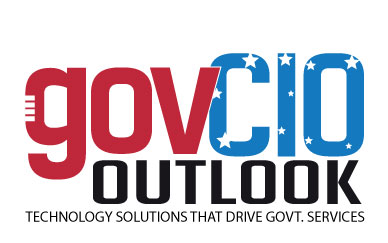APRIL - 20219GOVERNMENT CIO OUTLOOKCOVID-19 continues to proliferate during a highly-contentious election cycle, local elected officials have had to balance the all-important job of governing with learning how to campaign during a pandemic.We all know that 2020 is a pivotal election year, and while the American public can rest assured that they will still be inundated with the disquieting campaign ads and media frenzy from bothpolitical parties on the national level, the conversation is likely to be very different on the local level. Digital political ad spending is expected to reach upwards of $10 billion in this year's election cycle; however, candidates for local office, who often operate with extremely limited budgets and resources, typically depend on more traditional forms of in-person campaigning (such as door-to-door canvassing) to get their name and message out to their respective communities. Consequently, the pandemic places a disproportionate burden on local candidates for office, who are now forced to adopt more innovative methods of reaching voters.Despite this fact, the opportunities for voter contact are still plentiful on the local level. With an abundance of online meeting platforms from which to choose, local officials and candidates can host virtual events that are free and easily accessible to members of the public. Notably, some local officials and candidates for office have adopted these changes masterfully, hosting virtual events such as town halls or coffee hours to disseminate important information to constituents and allow voters to voice their concerns all while getting to know the official or candidate on a more personal level. Reverting to a pre-pandemic strategy, candidates for local office are simply calling constituents directly for personalized phone conversations centered on the policies that matter most to the voter. Also, while traditional door-to-door canvassing is largely being phased out by 2020 campaigns due to the inherent safety concerns with face-to-face interactions, candidates and volunteers have found that they can still safely deliver campaign literature via mail service or in-person, contactless delivery known as literature drops.The fact remains that in times of great volatility and unpredictability, local leaders have a unique responsibility to meet the moment with a steadfast resolve, and the indispensable role of local officials has never been more evident than now. In a time where information is ever-changing and oftentimes hard to discern in terms of its veracity, local elected officials and candidates for local office have the opportunity frankly, the duty to provide members of the public with transparent, fact-based, and reliable information. In response, voters should take advantage of the copious new tools at their disposal to keep themselves abreast of the issues not just at the national level, but in their local communities. By recognizing the momentous importance that local governance plays in our daily lives, and by adopting inclusive and safety-minded methods of communicating during the COVID-19 pandemic, local leaders and their respective communities are helping to sustain a healthy system of democracy in 2020 and beyond.
< Page 8 | Page 10 >
< Page 8 | Page 10 >
